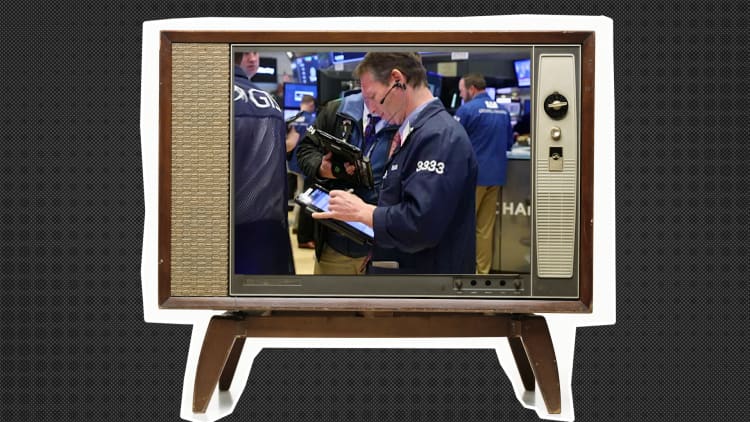Nearly 40 percent of Americans said they were "anxious" about stock market volatility, according to Allianz Life's 2018 Market Perceptions study, mainly because they worried they would not be able to protect their .
Another 42 percent feared a big market crash, 44 percent predicted a major recession on the horizon and 38 percent said "if the causing them to lose a lot of money, there is no way they could rebuild their savings in time for retirement," according to the findings.
The survey was conducted in June, and in October, market conditions proved even more unstable: The , for example, before rebounding and recovering most of its losses.
Many Americans are already at risk of retiring broke, or close to it. Though financial experts generally recommend trying to to fund retirement, a survey from personal-finance website GOBankingRates found that 42 percent of Americans have .
Similarly, a Northwestern Mutual study this year reported that 10 percent of Americans had less than $5,000 stashed away, while an additional 21 percent had nothing saved at all.
Not all of the people Allianz spoke to were worried about volatility, though. About 35 percent of respondents said they were comfortable with market conditions and ready to invest, up from only 26 percent a few years ago.
Indeed, some Americans are in far better financial shape than others. A quarter of respondents in Northwestern's study have $200,000 or more saved and 16 percent have between $75,000 and $199,999. And older generations generally than their younger counterparts.
No matter how much they have put away, though, many Americans are interested in taking action to protect their savings, Allianz found. Nearly 60 percent said they were willing to give up potential stock market gains for a financial product that keeps a portion of their money safe.
"This need for protection comes from expectations of future volatility," said Allianz, especially given the ups and downs of 2018.

Though Americans in general were voicing an "increasing comfort with volatility," Paul Kelash, vice president of consumer insights for Allianz, said, he also noticed "a simmering anxiety." Overall, he said, "people are still searching for the right solutions."
If you're worried about your investments, experts, including self-made billionaire Mark Cuban and Warren Buffett, have three suggestions: Don't panic sell, don't watch the markets too obsessively and maintain your long-term perspective.
"When it seems like the sky is falling," James C. Kelly, a wealth strategist at PNC Bank, tells CNBC Make It, "do your best to remain calm and remember that corrections and market downturns are normal and healthy. As an investor, you never want to make decisions based on emotions, especially fear, so first and foremost, try to remain calm."
And remember to pay yourself first: "Save as much as you can in retirement accounts" like a 401(k) or some sort of individual retirement account. Also, "cut costs where you can and make sure you have an emergency fund: at least ."
"Because we can't be certain when the next major downturn will occur," Kelash adds, "it's important that people grow their retirement savings while still safeguarding their financial future."
Here are some additional tips on how to save and invest responsibly.
Like this story? Like CNBC Make It on Facebook!
Don't miss: 3 things you should never do when the stock market tanks



